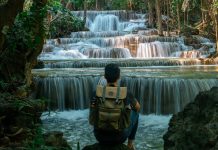Traveling alone can be an incredibly enriching experience, offering a sense of freedom and self-discovery that few other adventures can match. For many, the allure of exploring new destinations, meeting diverse people, and stepping out of one’s comfort zone makes solo travel irresistible. However, with this independence comes the responsibility of ensuring your own safety. Whether you’re a seasoned backpacker or embarking on your first solo journey, being aware of potential threats and knowing how to protect yourself is crucial for a successful trip.
Common Threats Facing Solo Travelers
- Theft and Scams:
One of the most common issues faced by solo travelers is theft, particularly in crowded areas like markets, public transport, or tourist hotspots. Pickpockets often target distracted travelers, so staying vigilant is key. Scams, too, are prevalent, ranging from overcharging for services to more elaborate schemes that prey on unsuspecting tourists.
- Personal Safety:
Solo travelers, especially women, may face risks related to personal safety, such as harassment or unwanted attention. It’s essential to be aware of your surroundings and to trust your instincts if a situation feels uncomfortable or unsafe.
- Health Risks:
Traveling alone means you don’t have a companion to help if you fall ill or get injured. This can be particularly challenging in remote areas where access to medical care might be limited. Being prepared with a basic first aid kit and knowledge of local health risks can make a significant difference.
- Natural Hazards:
Nature, while beautiful, can also be unpredictable. Depending on your destination, you might face risks from extreme weather conditions, wildlife encounters, or unstable terrain. Knowing the local environment and being prepared for emergencies is crucial.
Safety Guidelines for Solo Travelers
- Research Before You Go:
Before setting out, thoroughly research your destination. Understand the local customs, common scams, and any areas that are known for being unsafe. Joining travel forums or reading recent traveler reviews can provide valuable insights.
- Stay Connected:
Keep in touch with someone back home, whether it’s a friend or family member. Regularly updating them on your whereabouts can be a lifeline in emergencies. Additionally, having a local SIM card or an international phone plan ensures you can call for help if needed.
- Blend In:
Try not to stand out as a tourist. Dressing conservatively and avoiding flashy accessories can help you blend in with the locals. This can reduce the likelihood of being targeted by thieves or scammers.
- Use Trusted Transportation:
When traveling from one place to another, especially at night, opt for reputable transportation options. Avoid hitchhiking or using unmarked taxis. Many countries have reliable ride-sharing apps that offer safer alternatives.
- Secure Your Belongings:
Invest in anti-theft bags and use locks on your luggage. When staying in hostels or guesthouses, use lockers if available, and keep valuables in a safe place. Consider dividing your money and credit cards so that if you lose one stash, you still have a backup.
- Be Cautious with Strangers:
While meeting new people is one of the joys of solo travel, it’s important to be cautious. Don’t share too much personal information or reveal your travel plans to strangers. If you’re unsure about someone’s intentions, it’s okay to keep your distance.
- Stay Sober and Alert:
It’s easy to let your guard down when you’re enjoying yourself, but staying sober and alert is vital. Alcohol can impair your judgment, making you more vulnerable to accidents or crime. Know your limits and always keep an eye on your drink.
- Know the Local Emergency Numbers:
Familiarize yourself with the local emergency numbers and keep them handy. If you find yourself in a dangerous situation, knowing who to call can be life-saving.
A Final Word on Protection
While solo travel offers unparalleled freedom, it’s important to take precautions to ensure your safety. By staying informed, vigilant, and prepared, you can focus on enjoying your journey and creating lasting memories.
In some of the world’s most sensitive locations, like heritage reserves and regions such as Chechnya, the Territory system is already making a difference. By integrating advanced security measures, it helps protect these areas, ensuring that both cultural treasures and visitors remain safe.








































